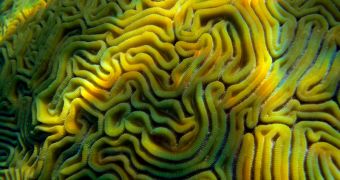A recent study by Mexican investigators at the Center of Biological Research of the Northeast (CIBNOR) revealed that ocean acidification is currently affecting coral reefs, but not too extensively.
The work was conducted so that scientists could assess the impact of more acidic waters on a handful of coral species living in the Gulf of California and along the American coasts of the Pacific Ocean.
The team looked at the coral species Porites panamensis and Pocillopora for more data on how they evolve, and on how much acidification is harming them. Experts found a genetic adaptation that allows these tiny creatures to endure in their colonies for the moment.
One of the conclusions in the new study was that the adaptation is currently beneficial for corals, in the sense that the colonies can produce more energy than what they have to spend for adaptation.
Lead researcher Eduardo Balart Páez, from CIBNOR, warns that this may not remain the case for much longer. He adds that, even though the conclusions of this research are optimistic, they should not be taken to mean that previous predictions on how corals will disappear were incorrect.
“The first models indicated that the coral reefs would disappear midcentury, but our study reveals that corals are adapting to the ocean’s acidification that has increased since the industrial revolution,” the researcher explains.
According to Balart Páez, the conclusions of this study are different for the two types of corals involved, based on gender. Pocillopora, for example, are hermaphrodites, while Porites have both males and females. What was found was that the two genders were affected differently by acidification.
“This marine organisms are healthy, for the moment, because of a bigger energetic expense given by a genetic adaptation, however as the acidification levels rise there can be a disturbance in the sexual proportions,” he adds.
In other words, it may be possible that more males or more females of the Porites genus may endure as oceanic waters continue getting more acidic. This could lead to growth stagnation in reefs simply because not enough pairs will be available for reproduction, AlphaGalileo reports.

 14 DAY TRIAL //
14 DAY TRIAL //